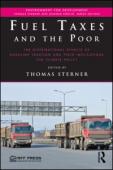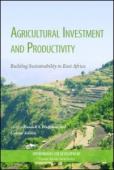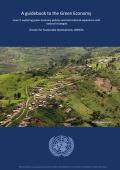
This book challenges the conventional wisdom that gasoline taxation, an important and much-debated instrument of climate policy, has a disproportionately detrimental effect on poor people. Increased fuel taxes carry the potential to mitigate carbon emissions, reduce congestion, and improve local urban environment. As such, higher gasoline taxes could prove to be a fundamental part of any climate action plan. However, they have been resisted by powerful lobbies that have persuaded people that increased fuel taxation would be regressive. Reporting on examples of over two dozen countries, this book sets out to empirically investigate this claim. The authors conclude that while there may be some slight regressivity in some high-income countries, as a general rule, fuel taxation is a progressive policy particularly in low income countries. Rich countries can correct for regressivity by cutting back on other taxes that adversely affect poor people, or by spending more money on services for the poor. Meanwhile, in low-income countries, poor people spend a very small share of their money on fuel for transport.

This book provides a deep and systematic look at the opportunities for and constraints to investments in sustainable agriculture in East Africa, offering important insights into what works and how to analyse agricultural investments in one of the poorest regions of the world.
The book critically examines the reasons behind East Africa's stagnant agricultural productivity over the past forty-five years, using the primary lens of investments in fertilisers, seeds, and sustainable land management technologies. These investment have a tremendous impact on production volume, ultimately affecting the income of millions of families throughout the region.
This book provides case studies on Kenya and Ethiopia.
This report addresses two of the defining challenges of the twenty-first century: achieving environmental sustainability and turning the vision of decent work for all into a reality. It shows that not only are both challenges urgent, but they are also intimately linked and will have to be addressed together. While it is certain that environmental degradation and climate change will increasingly require enterprises and labour markets to react and adjust, the goal of environmentally sustainable economies will not be attained without the active contribution of the world of work.
Ethiopian society, economy and environment are so intimately interlinked that systematic attention is essential if clashes are to be resolved and synergies realised. For example, the majority of poor people are principally dependent on agriculture but, in turn, society is dependent on farmers managing land well to sustain water supplies, biodiversity and other environmental services. Such relationships are dynamic and increasingly intense: climate change, rising population, resource scarcities and price volatilities put them all under pressure. An integrated perspective that works operationally is needed – one that makes economic, social and environmental sense and that inspires stakeholders. The holistic approach that the Ethiopian Government has recently developed aims to tackle the problems inherent in growth paths that produce environmental problems, and to realise potentials from investing in Ethiopia’s natural assets.

Green economy in the context of sustainable development and poverty eradication was one of two themes at the UN Conference on Sustainable Development held in Rio de Janeiro in June 2012 (or Rio+20).
Negotiations on green economy in the lead up to Rio+20 were challenging and the concept became a source of controversy and disagreement. Despite these challenges, governments agreed at Rio+20 to frame the green economy as an important tool for sustainable development; one that is inclusive and can drive economic growth, employment, and poverty eradication, whilst maintaining the healthy functioning of the Earth’s ecosystems. Importantly, the outcome document also recognises that capacity building, information exchange and experience sharing will be critical for implementing green economy policies. In this context, the document invites the UN to work with partners to provide support to developing countries and to develop toolboxes, best practices, methodologies and models to aid green economy policy design and implementation.
